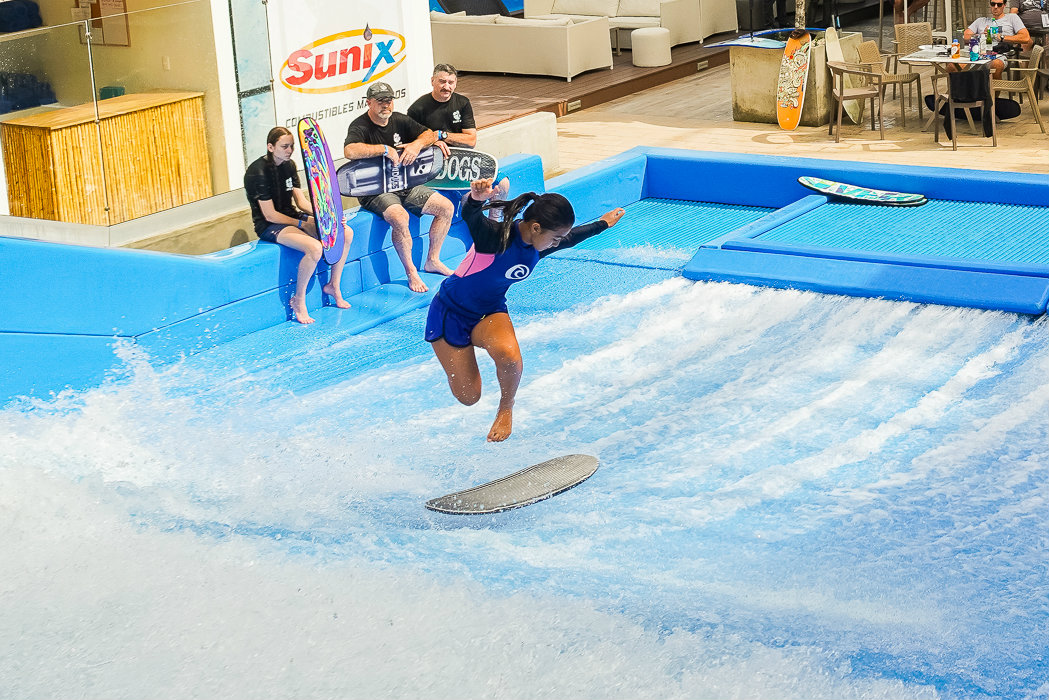An Appeals Court reversed a decision in a patent lawsuit between WhiteWater and Pacific Surf Designs regarding certain technologies used on surf simulators similar to those produced by WhiteWater’s FlowRider division.
In 2017, WhiteWater sued competitor Pacific Surf Designs and its owners, Richard Alleshouse and Yong Yeh over three patents — two for technology used on a half-pipe/quarter-pipe sheet wave attraction, and one for a nozzle structure that allows adjustable, non-planar flow on sheet rides, similar to that used on FlowRider’s WaveOz attraction.
Alleshouse had worked for the previous owner of the FlowRider line, Wave Loch, before starting Pacific Surf Designs. WhiteWater said that a non-disclose/non-compete covenant signed by Alleshouse for Wave Loch prevented him from being able to patent and market similar products.
Last year, a court agreed with the plaintiff, requiring the patents to be reassigned to WhiteWater.
But the appeals court overturned that decision, stating that the non-disclose/non-compete agreement was overly restrictive and effectively would prevent Alleshouse from working in water attractions.
“The restraining effect of these requirements is evident,” the court said in its decision. “Anyone in [Alleshouse’s] position would have developed useful, specialized knowledge of the business of water attractions, wholly apart from any confidential information. Work in the same line of business was necessarily among the best and likeliest prospects for such an individual to pursue when leaving the employer. Yet under the agreement’s assignment provision, pursuit of the very prospects… for which the individual ‘is particularly fitted,’ … carries a heavy price.”


